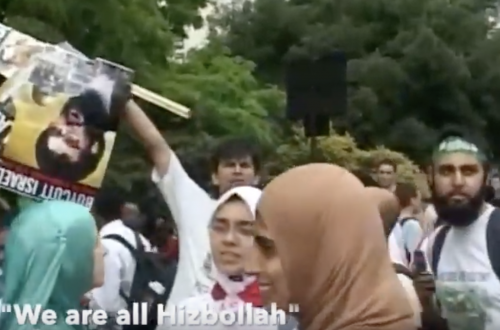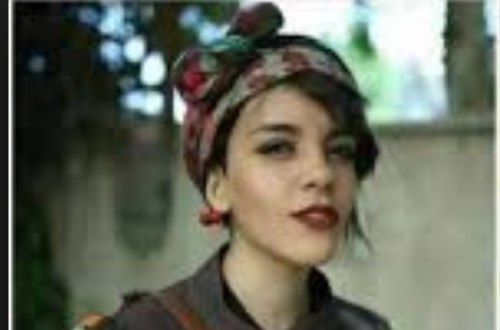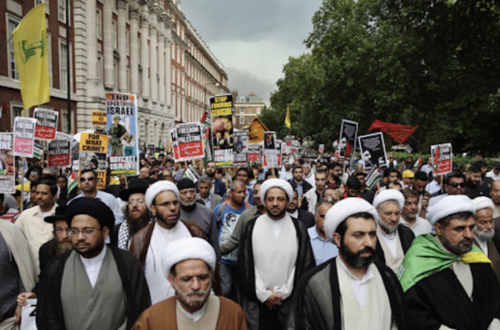IRNA, the news service of the Islamic Republic of Iran reports:
A seminar will be held next week in the northern UK city of Durham to discuss different aspects of religious democracy under the Islamic republic.
The one-day seminar, entitled “Religion and Democracy: the Case of Iran” will be held on December 10 in Durham University in the presence of professors from Iran and Britain.
Ali Mohammad Helmi, the Cultural Consul of the Iranian Embassy in London, said the seminar aims at introducing the role of religion and people in governance and different angels of the religious democracy.
“I hope the governance pattern of the Islamic republic presented by Imam Khomeini could be introduced in details to the British academics and students,” he told IRNA on Thursday.
Helmi added that the religious democratic way of governance can turn into one of the best models of democracy in the Muslim world.
He said such a pattern of governance has its roots in Islamic culture and principles while bringing pillars of democracy such as councils and parliaments into the limelight.
“No other country in the Islamic world except for the Islamic Republic of Iran attaches such a great significance to the role of public in administering the state of affairs. That’s why the ruling system in Iran has turned it into a unique system in the Middle East and among the Muslim world,” Helmi said.
In 1979 following an Islamic revolution in Iran, the system of governance was changed from monarchy to Islamic republic.
Almost all Iranians voted in a public referendum called by the then leader of revolution Imam Khomeini in the same year for the Islamic republic system whose principles are based on religious democracy.
According to him, the seminar will be held in line with a memorandum of understanding sealed between the Cultural Consulate of the Iranian Embassy and the University of Durham.
A few questions.
1. Is this event taking place? I can’t see it advertised? Is it run by the Centre for Iranian Studies?
2. What is meant by “religious democracy”?
3. Will dissidents and critics of “religious democracy”, and those who have been victimised and persecuted by this system, be involved in this seminar?
4. I would like to know what the terms of this “memorandum of understanding sealed between the Cultural Consulate of the Iranian Embassy and the University of Durham” are.
Would any of you like to investigate and find out?
UPDATE
Durham University have issued the following statement:
Dr Reza Molavi, Executive Director of the Centre for Iranian Studies, at Durham University, said:
“The event on Wednesday, December 10, is entitled Iranian Theocracy and Democracy: Convergence or Contradiction? It is part of the Ferdowsi Lecture Series presented jointly by the University’s Centre for Iranian Studies and the Cultural Centre of the Islamic Republic of Iran Embassy in London.
“It is a public event where speakers from both UK and Iranian universities will be comparing Western democracy with the idea of democracy in Iran.
“The Memorandum of Understanding is aimed at exchanging scholars and students in order to better understand the issues surrounding Iran which is one of the most strategically and politically important countries in the Middle East region today.
“Any money the University has been provided with is to cover expenses associated with the event.
“Durham University embraces freedom of expression and welcomes open and challenging debate on controversial issues so long as that freedom of expression is within the law.
“Durham has been a diverse university for many years, and we follow national guidelines on promoting good campus relations and on ensuring staff and students can live, study and work in a respectful and tolerant environment.”
Here is a poster advertising the event.
Does anybody know who these academics are? In particular, are any of these academics likely to take a critical approach to their subject matter?
UPDATE 2
My thoughts about this event, having read about it, is as follows
1. This is not as blatant as the SOAS ‘Celebrate Khomeini’ events, that have caused so much trouble in the past.
2. It is essentially about building links between sympathetic British academics and the Iranian state, and its academics.
Now, there’s nothing wrong, in my view, about British academics developing relationships with their counterparts – even in a country like Iran. That is potentially a good thing. Particularly so, if the British academics are not saps.
What I do think is worthy of comment, is the following.
1. What is a British University doing entering a Memorandum of Understanding, involving funding, from what is – let us face it – a hostile state, which is presently sponsoring and funding attacks against our armed forces, and underwriting and planning terrorist attacks against people in other countries, all over the world?
2. It is an excellent thing for open seminars to be held on the subject of ‘religious democracy’. However, remembering that ‘religious democracy’ in Iran means the disqualification of thousands of reformist candidates, each time there is an election, the murder of dissidents and religious and sexual minorities by the state, the imprisonment and torture of trade unionists, and so on…
… should not any conference on the subject not contain presentations from academics who are critical of this aspect of ‘religious democracy’.
Ali, below, says:
Rasekh is a respectable Professor in Beheshti University, and he has liberal ideas.
Paya works in the field of analytic philosophy, he is a harsh Popperian, but he is a kind of Islamist-Liberal too.
I do not know the last one as well, but he works in a very conservative university.
I think you can not expect “critical” views from them; Paya’s criticism is marginal and limited to a part of oligarchy in behalf of the other part; others has not shown critical views as far as i know them.
If this is so, isn’t this a danger that what we’re seeing here is propaganda exercise, rather than a genuine conference.
This can be remedied easily.
The next conference organised at Durham could be open to a broader range of Iranian academics. It should be an opportunity to encourage reform, not justify the status quo.



